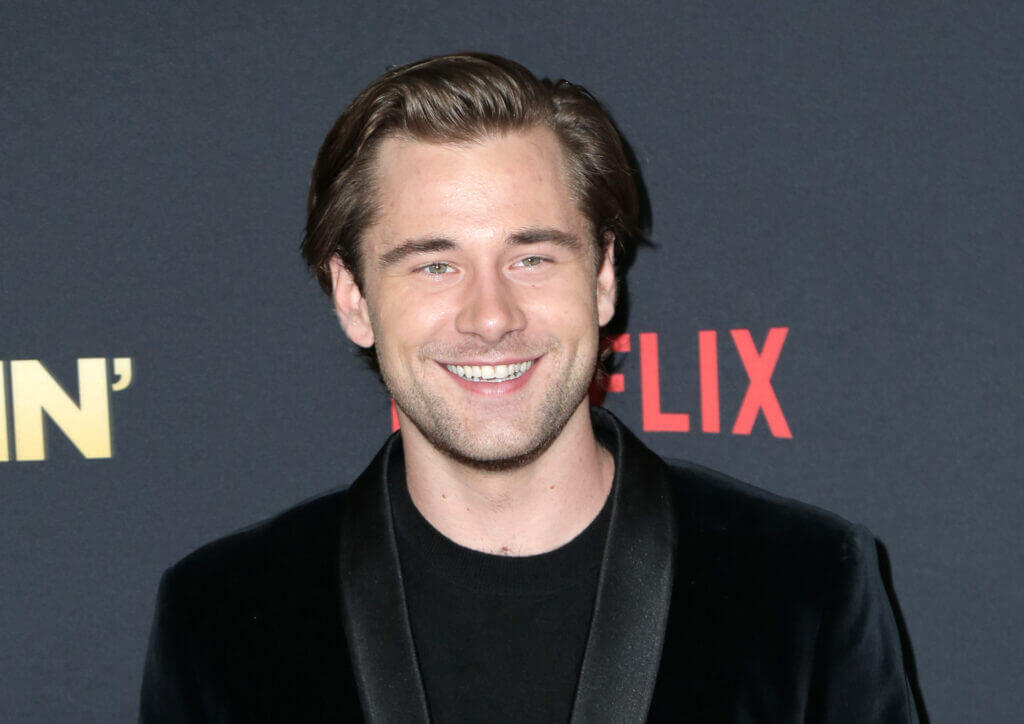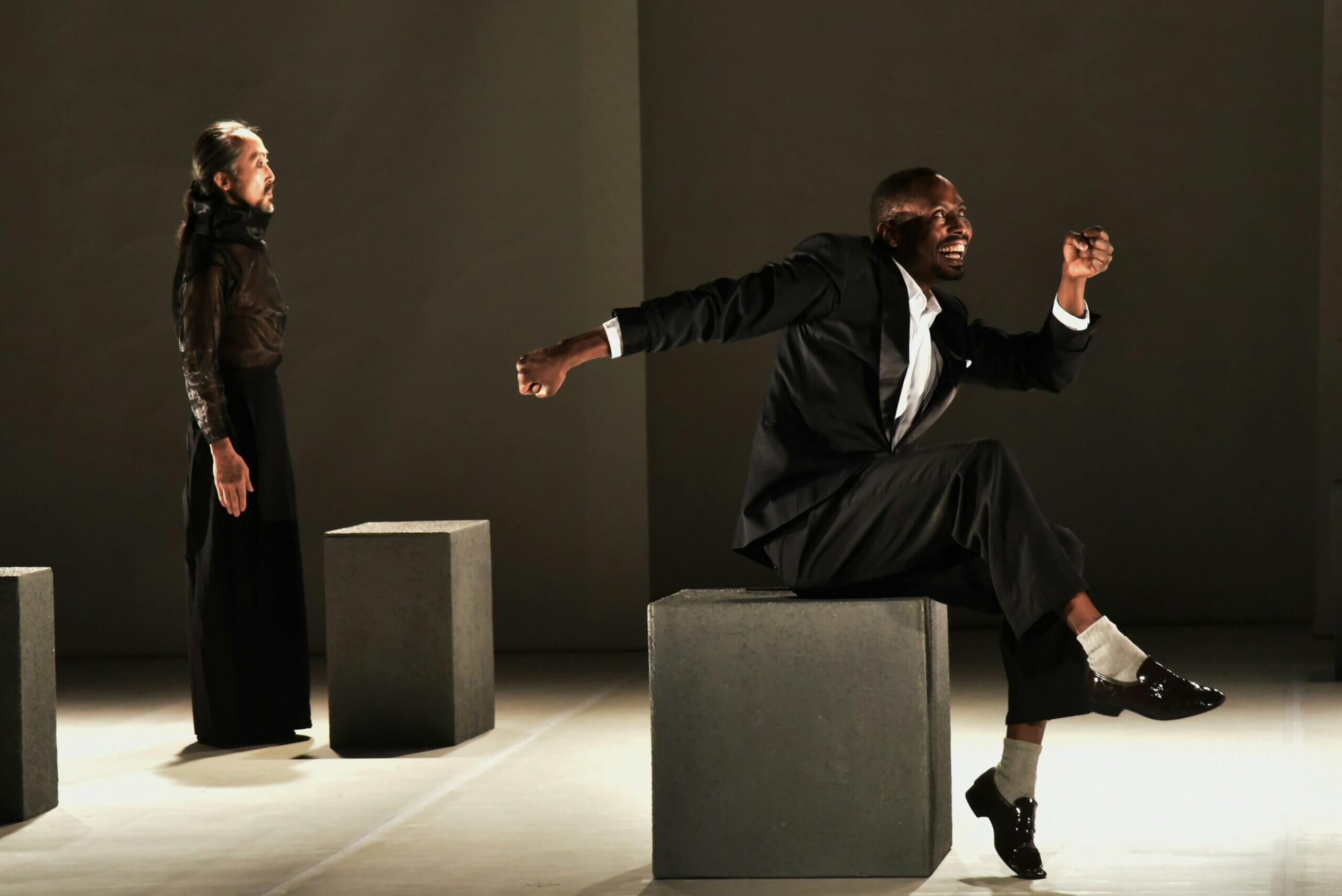On the Verge: Luke Benward
Luke Benward began his career at five years old when he was cast as Mel Gibson’s son in We Were Soldiers. Growing up in front of the cameras, he starred in multiple studio films such as How To Eat Fried Worms when he was 12, and continued his success into adulthood with leading roles in Life Of The Party alongside Melissa McCarthy and Dumplin with Jennifer Aniston. His most recent credits include Wildcat opposite Georgina Campbell, Grand Isle with Nicolas Cage and Playing God with Alan Tudyk and Michael McKean.
During the pandemic, Luke decided to pursue his dreams behind the camera by making his directorial debut with the short film Boys, starring Cameron Crovetti (Big Little Lies) and August Maturo (Girl Meets World). The story follows two boys playing in the desert – however, things take a dark turn and innocence is lost. The film, which is now qualified to be considered for a 2022 Academy Award, tackles topical themes such as guns and the tragedies that result when children can access them.
Benward spoke to Casting Networks about the film, what it was like working with its young actors, and the challenges that come with the role reversal he’s experiencing now on the other side of the camera directing them.
As an actor, what made you decide to pivot into filmmaking?
I’ve always been intrigued by directors. The director was always who you work closest with on set, outside of the other actors. It seemed like the coolest job. About six years ago, I started writing scripts in my free time, which opened up another door for me creatively. That’s when I realized I had a passion for more than acting. I had a passion for the whole picture. I knew if I ever got the shot to direct, I would take it.

“Boys” film still shot
How did getting that shot to direct come about?
I worked with David Mandell – the writer of Boys – as an actor when I was attached to a pilot he wrote. We connected creatively and maintained that relationship. During the pandemic he showed me a script for a short film he wrote, but everything was shut down. We thought, let’s go put together a team and figure out how to make this happen.
Did this project seem right in part because it was pretty much just two actors in a vast, open space, making it highly Covid-safe?
That was definitely a catalyst for us. The story takes place in a lot of open spaces. We put restrictions on how many crew members could be inside rooms or on set at any given time.
Tell me about the casting. How did you come across these child actors?
We knew we needed confident kids who had some acting experience and understood how to operate on a set. I was combing through IMDB and thinking back on projects I worked on in the past. I worked with August Maturo on Girl Meets World about eight years ago. I remember him being a sweet kid. His mom was awesome. As a child actor, he’s been at this for a while. I watched his reels, and he was just bringing it. The emotion was there. I wrote him a letter, pitched him the character, and told him how much I’d love to work with him again.
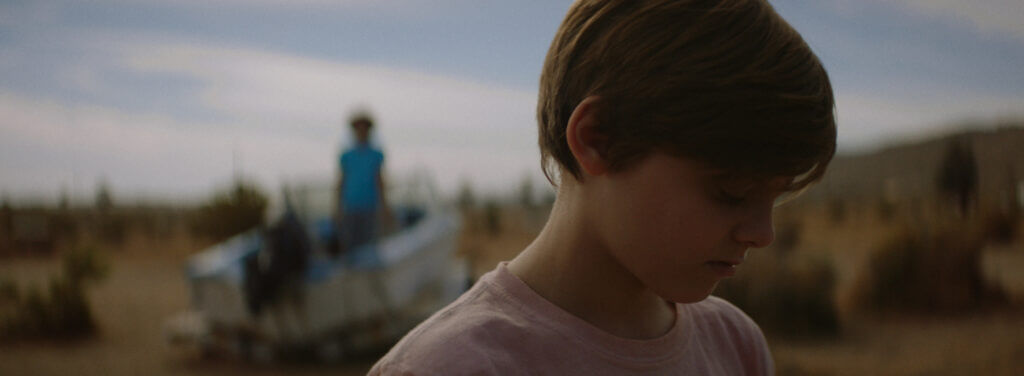
“Boys” film still shot
And Cameron Crovetti? He and his identical twin brother were terrific as Nicole Kidman’s sons in Big Little Lies.
Cameron and I are with the same management company, and my manager is also an executive producer on Boys. He’s been my rep since I was five years old and is like a second father to me in this business. He suggested Cameron. I looked at his work and watched him go toe-to-toe with Nicole Kidman in his scenes. He’s insanely talented. Casting him was a no-brainer. I also wrote Cameron a letter and pitched him the film. We got lucky with both of them.
Did you work with a casting director on this film at all?
No casting director. Just a network of friends – people we were confident could do these smaller parts without us having to read them. For example, the guy who plays the homeless man is Scott Reeves, a close family friend. He was on Young and the Restless and General Hospital for years. I’ve known him my whole life.
Did you ever think of casting yourself in one of those more minor roles?
I wanted to keep my focus on directing. In the future, I’d love to do both at once, but on Boys, I just wanted to find my sea legs with directing first. My focus was on making sure the two boys felt protected in their performances and ensuring the set was a sanctified place for them.
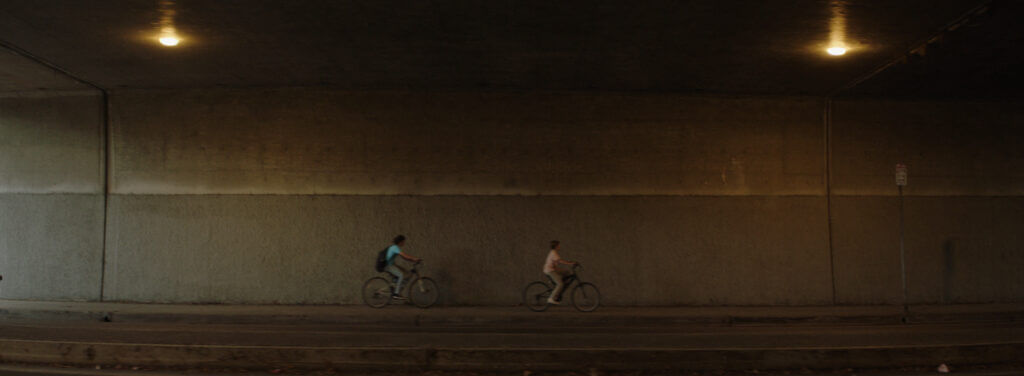
“Boys” film still shot
What does that mean, sanctified?
What I mean by that is that I wanted the boys’ space to be their space. This was their time, their moment. The adults already did all the preparation. If we needed more prep, it should be done on our time, not theirs.
Did that focus on the kids come from the fact that you were so young when you first started acting?
I definitely drew upon that. That was one thing I felt most confident with as the director – communicating with those boys and pulling out the performances I needed because I knew what it was like to be in their shoes. Acting is one of those misunderstood jobs on the set. It can be so fragile sometimes.
How so?
If you’re shooting an extremely charged scene, a lot goes into manipulating your mind and emotions. Something seemingly insignificant as cracking a joke between takes can rattle your headspace. I wanted to make sure that on the days we were shooting those charged scenes, the set was calm, quiet, and the work that needed to be done happened the way it was supposed to. If any communication was taking place, I needed it to be very soft and concise.
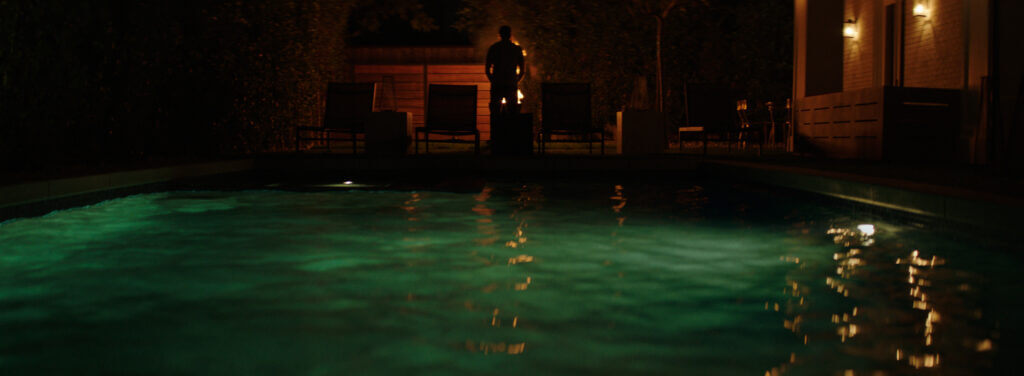
“Boys” film still shot
When you were directing them, did you feel nostalgic about your time as a child actor?
I was so focused on the work, but now looking back, there were reminders of my own childhood of being a kid on set and just how cool and magical that was. Except you don’t realize it at the time because you’re there taking the ride, having fun. It was a cool way to grow up. It made me respect the industry and respect doing it right as a first-time filmmaker.
Was there any particular director that you learned from when you were a kid?
One of my favorite directors I’ve ever worked with was Randall Wallace, who directed the first movie I ever did – We Were Soldiers starring Mel Gibson. I was five years old. Randall was a master communicator. He maintained his vision while also having lighthearted conversations and rallying the troops at the start of the day, and because he wrote Braveheart which also starred Mel, he had so many stories about that shoot. I think Randall is the director I have pulled from the most out of the directors I’ve worked with. Not only is he a phenomenal filmmaker, but a great human being. Working with him was just insanely collaborative and creative.
Getting back to your own directing, do you feel like you’re starting to get a feel for what your style is?
I wanted to make sure that what I was directing also impacted me. The heartbeat for me as a director is making sure that what I’m creating feels right. In art, there is no right or wrong; only this intangible ‘does it speak or does it not.’ Does it come off the page? Does it hit you in the heart? That’s what I was going for with Boys.
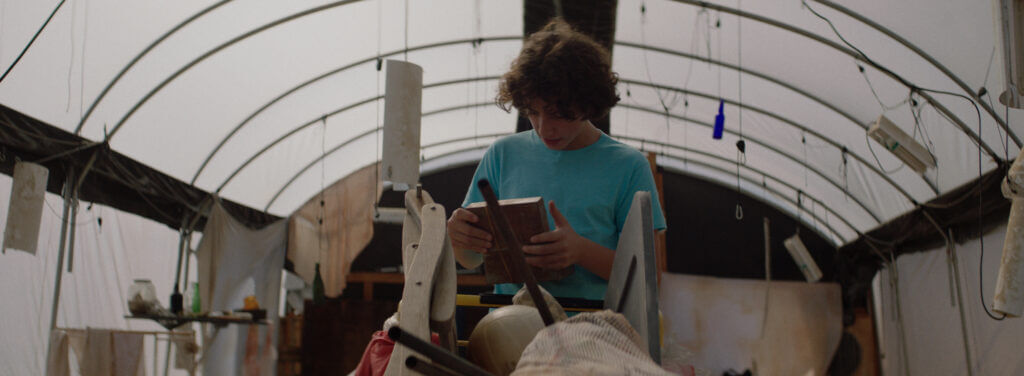
“Boys” film still shot
The subject matter of the film is very topical. It’s an issue that keeps coming up repeatedly in our world. Now it’s a political issue, a social issue, a legal issue… It’s a hot-button topic. To what extent were those issues circling in your head during filming?
I went into the shoot releasing any of my views. I didn’t want to pander or spoon-feed the audience any of my opinions or biases, but I also didn’t want to shy away from the topic. I wanted to present an honest story and depict the severity of the issue. I didn’t want to beat around the bush. That was my motivation going into it. I wanted to put something on the screen that shook foundations and forced people to feel something. I wanted to spark that conversation.
Let’s go back in time. You were five years old and living in Tennessee when your mom, an actress, took you on an audition for a movie that came to town and was looking for a kid to play one of Mel Gibson’s sons. What happened when you went?
At the audition they wanted me to say The Lord’s prayer because one of the scenes in the movie was the family praying. I didn’t know the Lord’s prayer, nor did I know how to read, so I said the Pledge of Allegiance followed by my citizenship pledge from kindergarten class. I booked it! That’s where I met Mitchell Gossett, who is now my manager and has been with me for the last 20+ years. The ball just kind of started rolling from there.
What was the auditioning experience like for you as a kid in Tennessee?
I didn’t move to L.A. until I was 17, so acting was always an extracurricular activity. I played football during football season, and then in the offseason, I auditioned. If I booked something, I’d go to work. All my money was put into an account. I didn’t see any of it until I was of age so there was never any pressure on me.
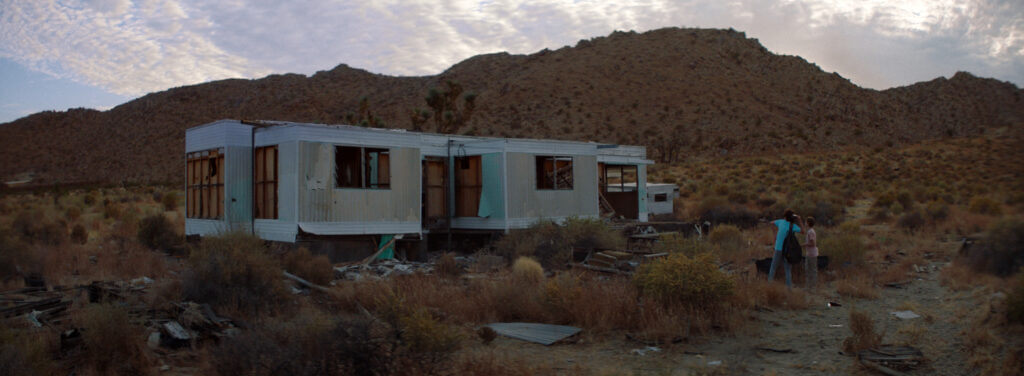
“Boys” film still shot
How did you handle rejection?
My little sister tried acting, and got really close to booking Little Miss Sunshine but , obviously, she didn’t. She was heartbroken and decided to stop, but there was something in me where I could let the losses roll off. I remember getting down to the end of a couple of projects that I didn’t get that were pretty hard to lose, but I always bounced back. My parents always said, ‘If you wanna stop, you can stop. You can stay in school, play football…,’ but I didn’t want to stop. I felt in my gut that I was meant to continue.
Was there any acting project that felt like a significant milestone for you?
A very defining project for me was Point of Honor. It was a pilot I did for Amazon set during the Civil War. Randall Wallace directed, and it was very much a full-circle moment for me. My character was the black sheep of this Virginia Civil War-era family. It was one of those dark, gritty characters. I had a scene in a bar where I broke a bottle over someone’s head and pulled a gun on the bartender. That shoot day was a day where I felt like something clicked. I had this deep level of calm and control during that character’s out-of-control moments. It was a defining moment, like a metamorphosis that occurred.
Did the pilot get picked up?
No, it did not! I’ve done five pilots, and not one of them has ever gotten picked up. I’m 0 for 5.
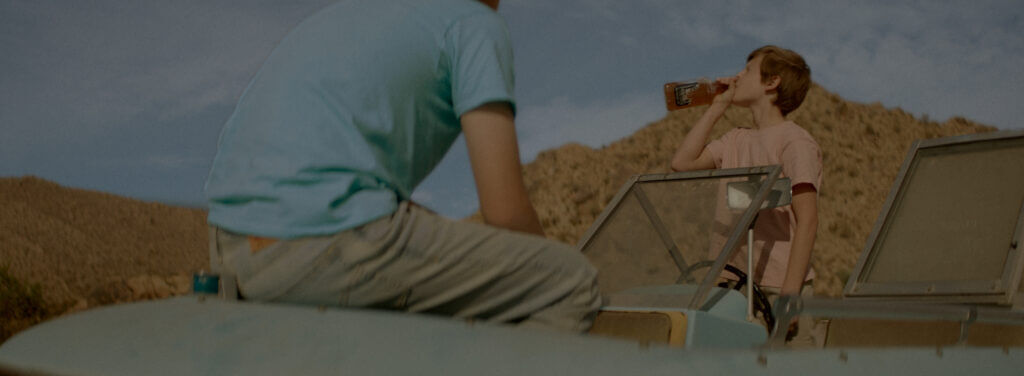
“Boys” film still shot
How has the casting process changed from when you started to what it is today?
It’s much easier and more common to do self-tapes now. It wasn’t like that when I was a kid. It’s all digital today. Back then you had to record it, convert it to something else and then go to Fed-Ex and mail it. But to be honest, I don’t love the atmosphere of auditioning right now. I miss being in the room. I miss the face-to-face, of ‘here’s my take on the scene,’ and the casting director going ‘cool try this,’ or ‘do that instead.’ There is so much more creative flow in the casting room. Now it’s a different energy. You’re trying to set up the ring light at home, recording 10 takes, and then watching all 10 for the next two hours just to pick one to submit. Then you’re like, ‘Oh crap, maybe they wanted a different version, I don’t know. I like this take more, but they might like that take more.’ It’s a draining process now. Every time I send a tape I’m like, I don’t know! There’s not a lot of communication afterward. I miss the in-person auditions. I really do.
Maybe this is a catalyst to do your own stuff. Like directing a short film that is now qualifying for Oscars!
Absolutely. Making my own work is the goal.
Looking to get your big break? Sign up or login to Casting Networks and land your next acting role today!
Related articles:
On the Verge: Amanda Jaros
On the Verge: Clifton Collins Jr.
On the Verge: Marcus Rutherford in ‘The Wheel of Time’
